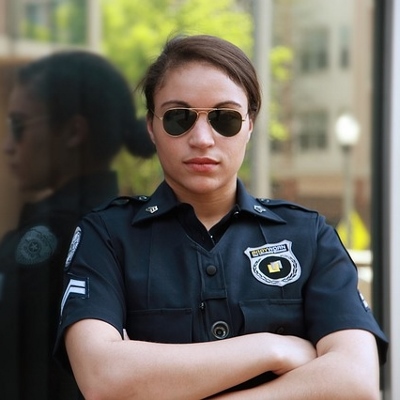 Recently a disturbing story about a middle school student with autism made the news — an 11-year-old boy ended up with a felony on his record after pushing a police officer who was trying to take him to his principal’s office. If that can happen to a pre-teen, parents may wonder, what might go wrong if a teen on the spectrum encountered police? You may be afraid your teen will panic and fight or flight will set in with disastrous results. If arrested, they may not stand on their rights. At the very least, the way they talk and act may seem defiant to police who may not recognize the disability.
Recently a disturbing story about a middle school student with autism made the news — an 11-year-old boy ended up with a felony on his record after pushing a police officer who was trying to take him to his principal’s office. If that can happen to a pre-teen, parents may wonder, what might go wrong if a teen on the spectrum encountered police? You may be afraid your teen will panic and fight or flight will set in with disastrous results. If arrested, they may not stand on their rights. At the very least, the way they talk and act may seem defiant to police who may not recognize the disability.
(I feel fortunate that the only time my son has had to deal with police was when an officer approached during the filming of a student video on location. My son immediately said, “We have a permit,†and the officer replied, “That’s okay, I just want to watch.â€)
Advocate Emily Iland, mother of a son on the autism spectrum, has more real life stories to tell, from the young man who had to agree “that in exchange for the privilege of getting to drive, he would never say anything Jim Carrey ever said in any of his movies if he got pulled over†to the shocking story of a 13-year-old who confessed to a felony because he thought he had no choice. (There were no lawyers handy, and he had no money to pay one anyway, he reasoned.) She believes training, both of people with disabilities and of police officers, is the way to prevent these sometimes tragic incidents. With that in mind, she produced the 2013 educational film Be Safe: The Movie, which shows people with autism and other disabilities the right way to deal with the police.
Three key skills the film teaches are:
Stay Where You Are
Stay Calm
Follow All Instructions from the Police
It also deals with how to let police know you have a disability (important for people with autism, who are often said to seem “so normal†and whose typical blank expression may come across as a drugged state). Another lesson is remaining silent according to your rights if you’re arrested. The right behavior is modeled by a cast that includes real police officers and real people with autism.
Whether or not you want to go for the full training package, these are life skills you need to make sure your special needs teen learns.










